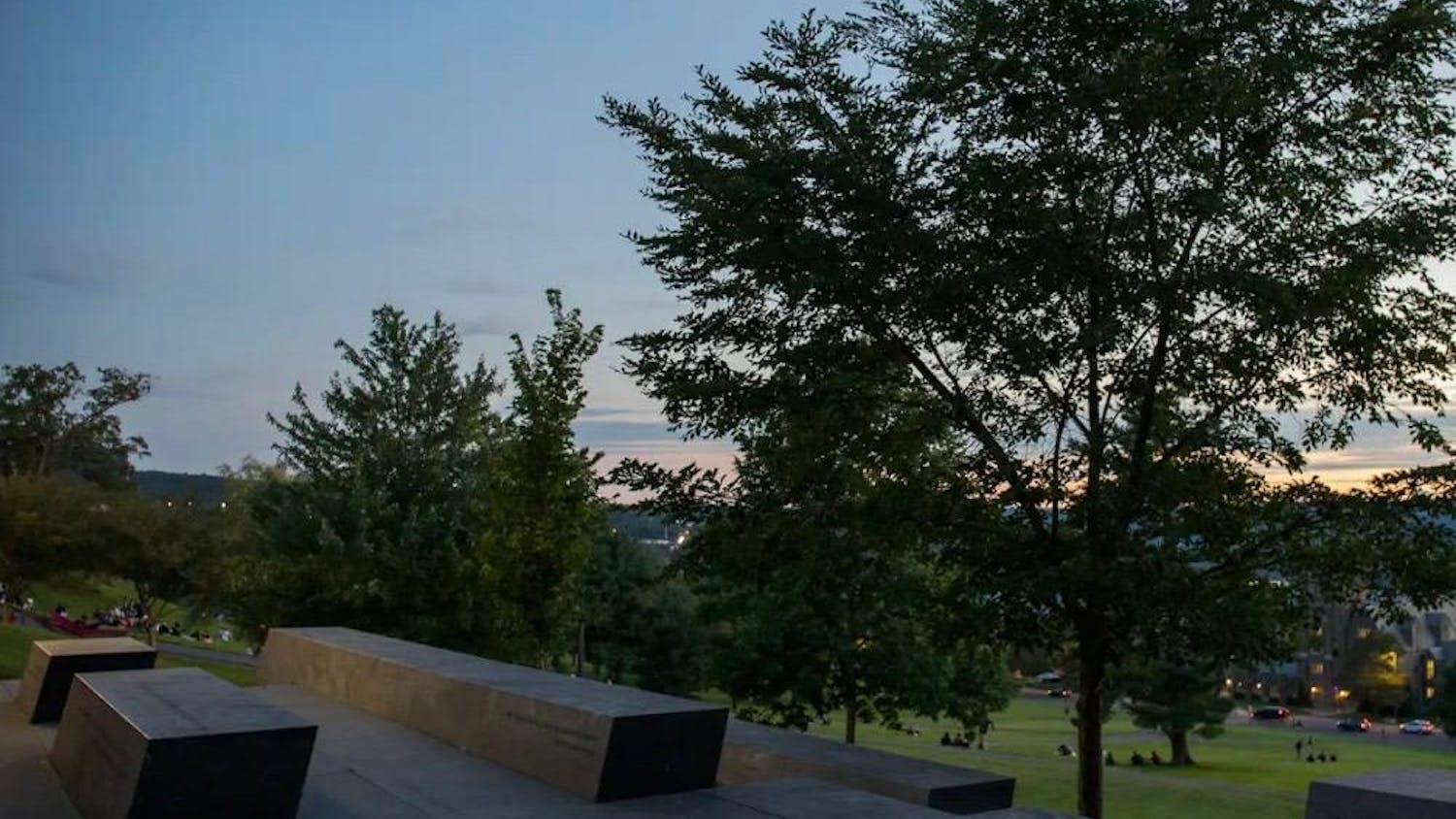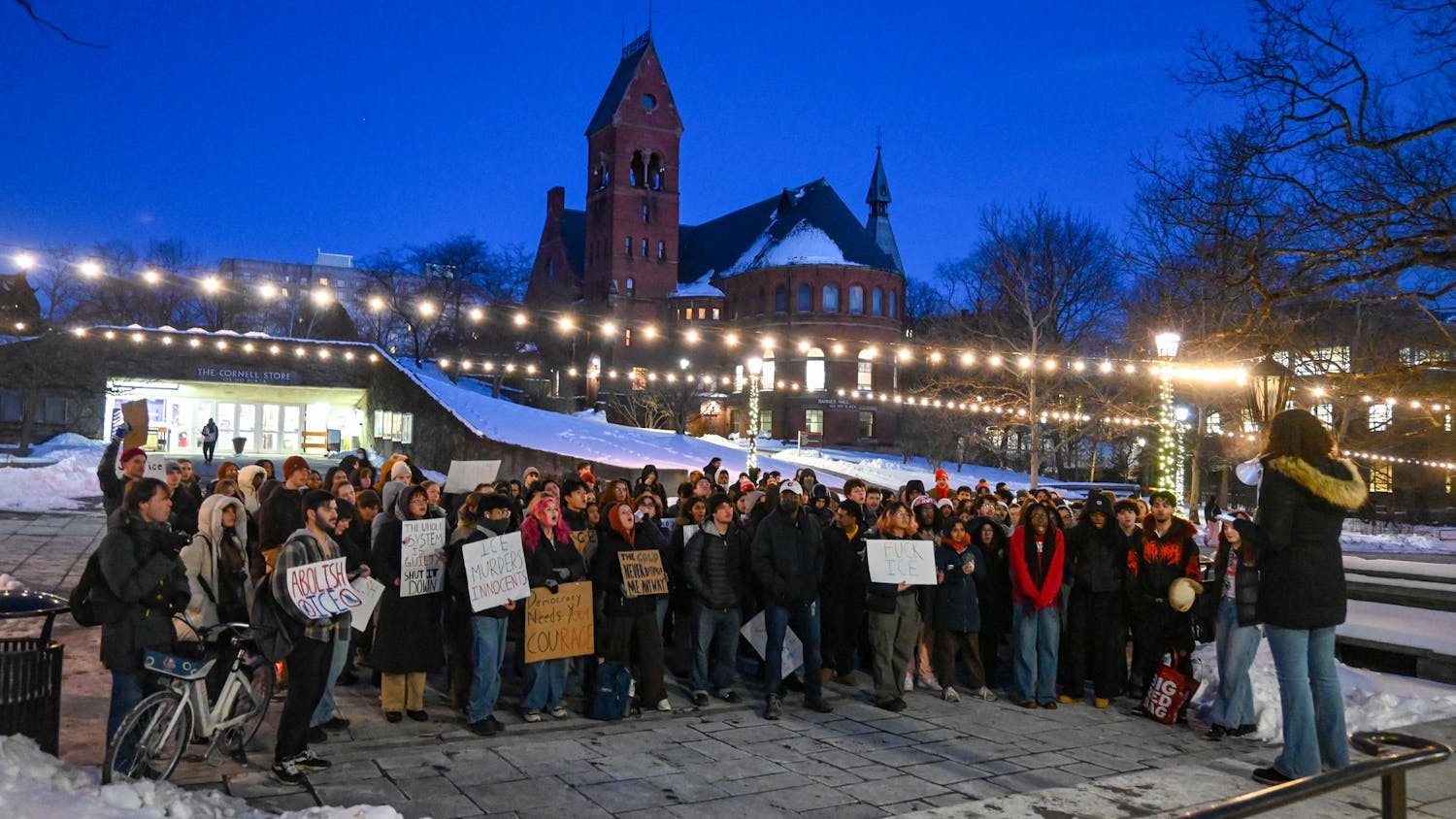The debate over campus police disarmament has entered its fifth week: on Tuesday, the Student Assembly held a town hall meeting for students to voice their thoughts on the issue to their S.A. representatives.
For the weeks following the Nov. 19 vote against Resolution 11 — which would have urged the University to disarm the Cornell University Police Department — people on both sides of the argument have lamented the lack of closure from feeling unheard and condemned the resulting harassment. The resolution failed 14-15-1.
The town hall saw few novel points over the course of an hour and a half. The 65 different speakers during the town hall were overwhelmingly in favor of Resolution 11, mostly calling on S.A. members to represent their constituents and vote in favor of safety for BIPOC. Just seven people spoke in opposition.
Those who did reject — or merely question — the resolution were met with swift backlash, often with supporters of the resolution calling them racist.
Joe Silverstein ’22 pushed back on Resolution 11, arguing that it’s “totally reasonable” for police to have firearms to do their jobs. He asserted that his position had “nothing against Black students or students of color,” saying that the police “keep them safe, too.”
“To say that people who support police having guns [have] a racist position is absolutely absurd,” he said.
Silverstein also claimed that “the majority of campus” agreed with him, later clarifying that this majority was not present because of “fear of suppression of free speech.”
Another student, Peter Deckerman ’22 said he largely supported disarmament but disagreed with the specifics of Resolution 11 as an Emergency Medical Services responder — namely to not call CUPD for student mental health emergencies. He said his position often requires him to respond to violent, disoriented people, and that EMS workers often call on CUPD for assistance.
Since EMS workers cannot restrain people, Deckerman said he would “not feel safe responding” without adequately equipped CUPD officers available. He said the other option would be to leave people, which would be “medical negligence” and leave EMS liable.
The hour-and-a-half long meeting also heard many stories from students about feeling unsafe around police, including from William Henderson ’22, who spoke about his fear walking home from his shift at Louie’s Lunch each night around 3 or 4 a.m.
“That walk, for me, is dreadful. It is scary. I see police officers parked on the side of the road. Just the thought that tonight could be my last walk — from work, where I have to go to make money to pay for my education,” Henderson said. “That fear, for work, is not something that I should have as a student on campus.”
While mostly undergraduate students spoke throughout the town hall, the more than 225 attendees also included graduate students and broader community members.
Third-year law student Kezia-Alean Osunsade said she did her undergraduate degree at a school that voted to disarm its campus police, offering a framework to reallocate resources to “support” students more meaningfully through mental health services. “Don’t worry, we were safe,” she said.
Osunsade also described a story of being stopped by Cornell police because officers claimed they smelled marijuana in her car. She said this was the main shared experience of campus she had with her mother, who did her undergraduate degree at Cornell: The police sat both of them on the curb and “accused us of being criminals.”
The town hall was one of the tamer S.A. discussions of disarmament: In place of interruptions and chat heckling, attendees were only called on through a Google Form that required Cornell netIDs. In the past, people had pointed to these procedural issues as a reason they didn’t feel heard. The chair muted only a few speakers who went over the two-minute limit.
Seven S.A. members were absent from the town hall — including five who voted “no” on Resolution 11: Andrea Miramontes Serrano ’24, Carlo Castillo ’22, Dillon Anadkat ’21, Lucas Zumpano ’22 and Sonu Kapoor ’21. Anadkat later clarified to The Sun that he had an excused absence due to being in a different time zone, watching the recording after the fact.
The original resolution vote also spurred recall petitions for 14 members, claiming these representatives ignored their constituents’ voices by voting “no.” All of the petitions failed by large margins. The closest margin was for Zumpano, School of Industrial and Labor Relations representative: the petition received 127 signatures, or just over 25 percent of the 493 to remove him.
On Thursday, co-sponsors of Resolution 11 hope to hold a revote as Castillo, College of Agriculture and Life Sciences representative, previously told The Sun he would flip his “no” vote to a “yes.”
This will be the third time since Nov. 12 the resolution comes to the floor, after the S.A. failed to call a revote during a lengthy Dec. 3 meeting with over 200 community members in attendance.
Meghna Maharishi ’22 and Alex Hale ’21 contributed reporting.
Update, Dec. 10, 12:41 p.m.: This article has been updated to include a statement from Dillon Anadkat ’21to clarify his absence.
Correction, Dec. 11, 11:59 a.m.: Peter Deckerman ’22 clarified that he was speaking broadly from an EMS perspective, not as a Cornell University Emergency Medical Services responder. A previous version of this article also incorrectly referred Lucas Zumpano ’22 as a member of the Class of 2021. The article has since been updated.











